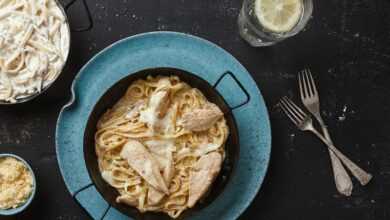
Making Calorie Counting a Sustainable Lifestyle: Strategies for Long-Term Success
Counting calories can be an effective tool for weight management, but it’s easy to become obsessive or burnt out if approached with an all-or-nothing mindset. The key to sustainable success lies in finding a balanced approach that fits seamlessly into your lifestyle. In this comprehensive guide, we’ll explore practical strategies to make calorie counting a habit that sticks, without sacrificing your mental well-being or enjoyment of food.
Focus on Nutrient-Dense Foods
Instead of fixating solely on calorie numbers, shift your focus to eating nutrient-dense foods that are high in vitamins, minerals, and other essential nutrients. This includes fruits, vegetables, whole grains, lean proteins, and healthy fats. Not only are these foods more satiating, but they also provide the nourishment your body needs to thrive. By prioritizing nutrient-rich choices, you’ll naturally consume fewer empty calories, making it easier to stick to your calorie goals without feeling deprived.
Practice Mindful Eating
Mindful eating is a powerful tool that can help you develop a healthier relationship with food and reduce the need for strict calorie counting over time. This practice involves being present and aware during meals, savouring each bite, and paying attention to hunger and fullness cues. By tuning into your body’s natural signals, you’ll learn to recognize when you’re truly hungry and when you’ve had enough, reducing the likelihood of overeating or undereating.
Create a Meal Plan or Recipe Book
One of the biggest challenges of calorie counting is the constant need to measure and calculate the calories for every meal and snack. To streamline this process, consider creating a meal plan or recipe book with pre-calculated portions. Measure and calculate the calories for your go-to meals and snacks once, then compile them into a handy reference guide. This way, you can easily log pre-calculated portions without having to track every ingredient each time.
Use Approximations for Meals Cooked by Others
When dining out or eating meals cooked by others, it’s unrealistic (and unnecessary) to obsess over exact calorie counts. Instead, use reasonable approximations from your calorie-tracking app’s database. Many apps have extensive listings for restaurant meals and common dishes, allowing you to log close estimates without stressing over precise numbers. Remember, the goal is to maintain awareness, not become obsessive.
Utilize the “Meals” Feature
Most calorie-tracking apps have a “Meals” feature that allows you to save and log entire meals with a single click. This can be a game-changer for streamlining the process, especially for frequently eaten dishes or restaurant meals. Simply create a “meal” with all the components, and you can log it with ease whenever you need to.
Set a Flexible Calorie Goal
Instead of fixating on a strict calorie target, set a flexible goal range and focus on staying within that range most days. For example, if your target is 1,800 calories, aim for a range of 1,600 to 2,000 calories. This allows for some flexibility and prevents an all-or-nothing mindset, which can lead to feelings of failure and eventual burnout.
Take Breaks When Needed
While calorie counting can be a valuable tool, it’s important to recognize when it becomes too obsessive or negatively impacts your mental health. If you find yourself constantly preoccupied with calorie numbers, experiencing anxiety around food, or developing disordered eating patterns, it’s time to take a break. Seek professional help if necessary, and remember that your well-being should always come first.




